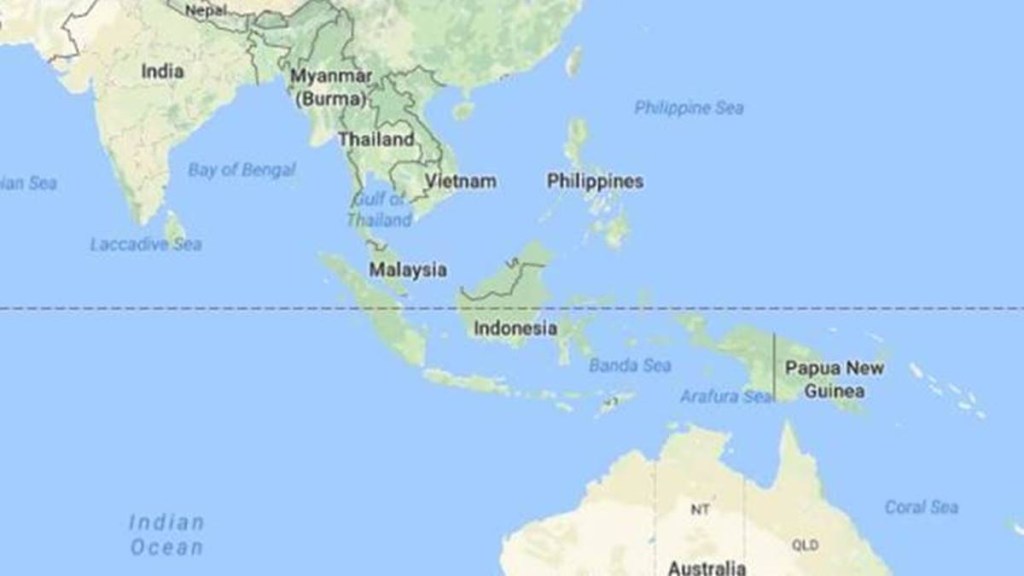By Sayan Chatterjee
The Indo-Pacific region is currently undergoing significant changes across various domains, signifying a period of transformation. The recent COVID-19 pandemic has had wide-ranging effects on the region’s political, demographic, economic, environmental, and strategic aspects. Consequently, the region is experiencing strategic uncertainty, leading to complex interactions among nations. Notably, there have been notable shifts in the domestic political landscapes of key countries and evolving international relations. These transformations indicate a global transition in progress. By 2050, emerging economies, particularly China and India, are projected to become the leading economies, reshaping the global economic order. However, the broader Indo-Pacific region may encounter challenges due to the adversarial relations between these nations and the United States.
The Indo-Pacific region has emerged as a significant global powerhouse in manufacturing and services, contributing a substantial portion to the global GDP. Its seaways play a crucial role in international trade, carrying a significant share of hydrocarbon, bulk, and container shipments. Maintaining uninterrupted maritime trade flow in the region is of immense importance to the global economy. The expansion of regional and global trade in the Indo-Pacific has also brought about new maritime security challenges. In addition to traditional concerns like geopolitical fragility, territorial disputes, and sea-lane security, non-state actors now pose asymmetric threats. The diverse range of nations bordering the region, including prosperous states and developing countries, further complicates these challenges.
Furthermore, the Indo-Pacific region is witnessing increased strategic competition among regional and extra-regional powers. The economic and technological shifts, particularly the rise of China and the narrowing technological gap, are shaping the political landscape. This power transition and diffusion have security implications for the regional and global order, potentially leading to conflicts and disputes. The region hosts the ten largest militaries, accounting for a significant portion of global military expenditure. The military build-up by regional and extra-regional powers, such as China’s rapid maritime expansion, raises concerns. Collaborative measures focusing on the maritime commons are crucial to maintaining the strategic equilibrium of the Indo-Pacific.
As the balance of power shifts, existing international institutions, mechanisms, and norms must adapt to accommodate these changes. Failure to do so may result in unresolved disputes, non-compliance with international laws, and subversion of the established order. Increasing regional instability and the growing impact of individuals and groups challenge traditional institutions, as exemplified by the rise of the Taliban in Afghanistan. The increasing global population and societal expectations also lead to rising demand for resources. Access and control over resources in the global commons, including oceans, polar regions, outer space, and cyberspace, are becoming contentious issues. The impact of climate change further compounds the region’s challenges, affecting security, the environment, and the economy.
In the face of these complexities, a cooperative and collaborative approach is necessary in the Indo-Pacific region. India’s concept of SAGAR (Security and Growth for All in the Region) provides a foundation for a regional and global outlook. The Indo-Pacific Oceans Initiative (IPOI), with its pillars focused on various aspects of maritime security and cooperation, offers a promising platform for inclusive engagement. There has been a renewed focus on maritime issues and dialogues in the region, exemplified by the Quad and Two plus Two meetings, which highlight the importance of the region. Logistics support agreements and cooperative mechanisms demonstrate a shared commitment to stability, security, and peace. Expanding the Quad to include nations aligned with a rules-based international order can further contribute to a free, open, and inclusive Indo-Pacific.
India’s emphasis on freedom of navigation and the desire for the free movement of people, goods, services, and investments across the region aligns with its commitment to preserving peace, promoting stability, and maintaining security. A stronger maritime position is essential as the Indo-Pacific region continues to shape global economic and security paradigms.
The author is a Delhi-based, independent journalist.
Disclaimer: Views expressed are personal and do not reflect the official position or policy of Financial Express Online. Reproducing this content without permission is prohibited.

